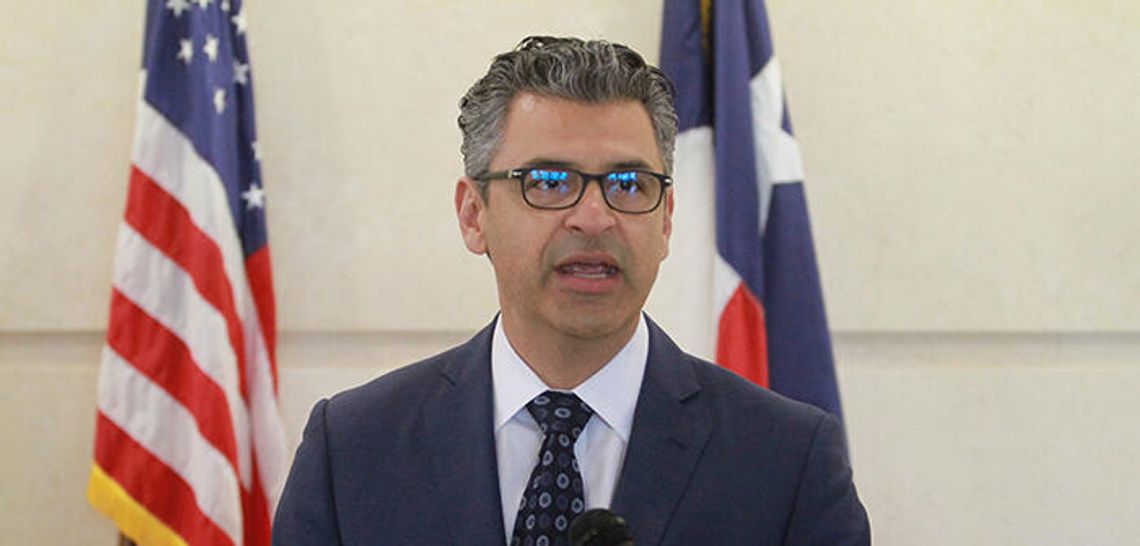Lingering issues on a grant application meant to fund a public defender’s office led Hays County Commissioners May 10 to reject a second attempt at approving the item.
The move happened when no other commissioner seconded a motion by Hays County Judge Ruben Becerra to approve the application. It was the second discussion on the Texas Indigent Defense Council (TIDC) grant in roughly a week’s time. County commissioners shot down the application in a similar fashion at the May 7 meeting. The grant application was due May 10.
The TIDC grant provides 80% funding to participating counties and reduces the level of funding for counties over several years.
A significant qualification of the grant application is the support of county staff, county judges and district judges. However, Becerra did not have that support secured May 7 and still did not have it May 10. The rest of the application was not completed when first presented to the Commissioner’s Court dais May 7; Becerra said the application was completed by May 10.
But several commissioners were worried about a continued lack of information on the application, as well as a lack of support behind it. Those same issues led commissioners to originally kill the application May 7.
Hays County Pct. 4 Commissioner Walt Smith said he was against applying because he is concerned about getting rejected and not focusing on any solutions he felt could be more viable.
“The concerns that I have is that very clearly in the application is that we must display broad support from our local judiciary,” Smith said. “I’ve spoken with most of our judges and I have yet to find one willing to sign.”
The concept for the grant was an idea Becerra and his staff had when he took office. Becerra said his staff conducted research on the application and attempted to present it to commissioners about two to three weeks before it was due, said Chief of Staff Alex Villalobos.
“We’ve been working on this for some time now and I asked to place it on the agenda, but I was told I asked too late,” Villalobos said.
After an hour of discussion among citizens, commissioners and local judges, Becerra called for a motion to apply for the grant with the option to gain judicial support post-application.
No second to the motion was offered.
But all commissioners and county leaders expressed concerns about the efficiency of the county’s legal system.
Hays County Pct. 5 Justice of the Peace Scott Cary said residents are suffering from a lack of public defense for indigent defendants.
Cary provided evidence May 10 of residents serving more than three months in jail due to a lack of representation and a slow legal system.
County commissioners said they would be interested in applying for the grant in 2020. They would do so after research and work is done to gain support, as well as filling out the application in advance of the deadline.
“Our county has been working on criminal justice reform for years,” Becerra said. “That is a pace I cannot appreciate. I will not let this die on my desk.”
However, Villalobos and Becerra addressed their intent to bring up the TIDC grant as an item for discussion in a Feb. 27 email to the General Counsel’s office. Villalobos was told in later emails sent by General Counsel Mark Kennedy that the grant application needed to be posted on an agenda for the court to vote upon.
It wasn’t until 3:30 p.m. April 26 that Villalobos requested to post the TIDC grant item to the agenda. Villalobos’ request was denied because the agenda had already been posted.
Legal Support Services Specialist Janice Jones said in an email to Villalobos that she had already posted the agenda for that week’s Commissioner’s Court meeting and could not add his requested item. Jones said she would have waited to post the agenda if Villalobos had given advance notice about possibly including the grant.
Villalobos said he was informed by the General Counsel that he had until 5 p.m. on the Friday before each commissioners court meeting to send in an agenda item.
In an April 29 email, Kennedy said the agenda is normally posted between 2 p.m. and 5 p.m and is completed on Jones’ timeline. A posting closer to 5 p.m. is often due to communication from an outside office that they have an agenda item coming.
Kennedy said Jones “had not heard” they were working on the item. He added previous emails from Villalobos did not mention of wanting to post a supplemental agenda or that the item was an emergency.











